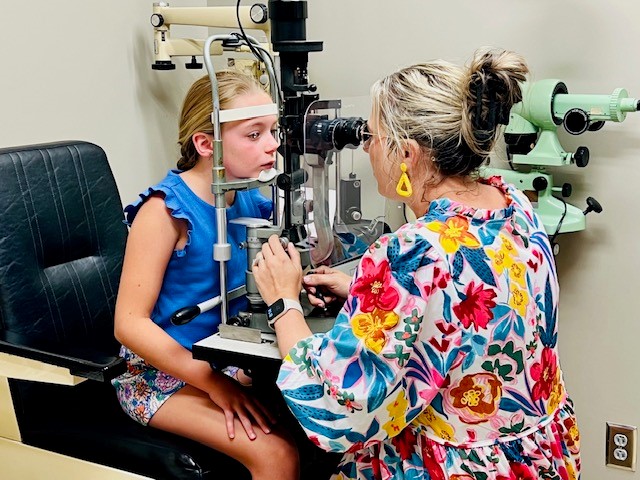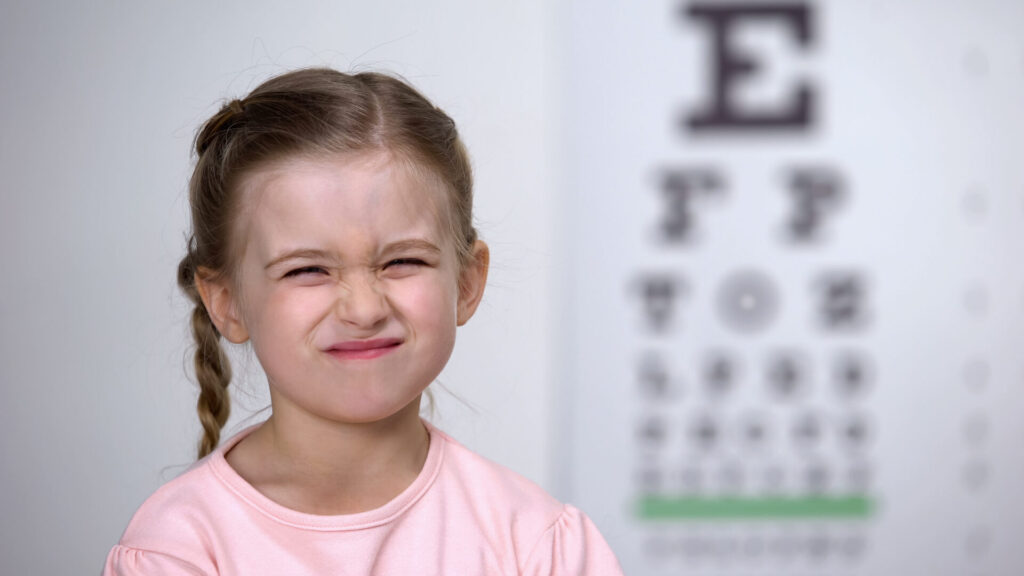“The days are long, but the years are short.” If you’re a parent, you understand how true that phrase is about watching your children grow. You don’t always see it in the nitty-gritty of everyday family life, but your children are constantly developing and reaching developmental milestones. Each time they surpass a new milestone, it’s an undeniable reminder of how fast time can fly.
As your child grows and develops, it is crucial to monitor all aspects of their health, including their eye health. Monitoring your child’s eyes is essential since vision is the sense we rely on the most. Our brains rely on visuals and visual cues more than anything else – including sound, touch, taste, and smell – to make decisions or react to our surroundings. That’s why it is so important to ensure your child’s vision and optical health are adequately monitored. Good vision or corrected vision sets your little one up for success as they learn to take on the world.
When Should I Start Taking My Child to the Eye Doctor?

According to the American Optometric Association, babies with little to no risk of vision issues, or those with no sign of eye issues or vision problems, should visit the eye doctor for the first time at six months old. However, infants with noticeable optical abnormalities or vision difficulties may need to see the eye doctor even earlier if your pediatrician recommends it.
After the first visit, it is recommended to take your child back to the eye doctor when they reach the age of 3, then again at 5. Should your child’s eye doctor detect an issue or complication with your child’s eye health, you may need to increase the frequency of your visits.
Once your child turns 6, it is recommended to have their eyes checked once every year until they reach the age of 18. Vision issues like myopia (nearsightedness), hyperopia (farsightedness), or astigmatism can develop at any point, and many patients develop these problems in childhood or early adolescence. Plus, they can develop slowly enough that your child does not realize they are having difficulty seeing until the eye doctor discovers it.
What Common Vision Issues Could My Child Develop?
Children are susceptible to developing particular vision or optical issues, and they do not always show obvious symptoms at first development. Some of the most common complications include:
- Amblyopia (lazy eye)
- Convergence Insufficiency (physical inability of the eye to focus)
- Hyperopia (farsightedness)
- Myopia (nearsightedness)
- Strabismus (crossed eyes)
Side Effects of My Child’s Undetected Vision Issues
As a result of certain ocular or vision issues, your child may experience:
- Blurred vision
- Depth perception issues
- Difficulty receiving and processing information
- Double vision
- Eye fatigue
- Eye teaming issues (focusing and tracking issues due to the eyes not working together as a team)
- Hand-eye coordination problems
In extreme cases, untreated vision issues could lead to permanent vision loss or life-long vision complications.
If your child struggles with any of these symptoms, they are likely also suffering in the classroom or during extracurricular activities.
Signs My Child Is Struggling With Their Vision

Without routine eye exams, you and your child may not know their vision is off-kilter. Like the frog in the pot of heating water, vision issues can progress so gradually that neither of you realizes vision changes are happening.
However, there are some signs to look out for when it comes to your child’s performance or behaviors in school, on the field, or out and about. Pay attention to things your child might do, like:
- Covering one eye to see better
- Having difficulties following the action in a game of soccer, baseball, basketball, or other sport
- Mentioning frequent headaches
- Putting their face extra close to books, papers, or other reading materials to see
- Struggling to read or make out figures at a distance
Regular Eye Checkups with Vision Eye Group Are Essential for Your Child’s Vision
If you want to set your child up for success in the classroom and in the everyday world, maintain regular eye exams with any of our trusted optometrists or ophthalmologists. We will check your child’s eyes and provide any necessary corrective lenses or treatments your child may need. We also offer referrals to reliable vision therapists or other needed professionals. Schedule your child’s eye exam today by calling 478-744-1710.
Related Articles
